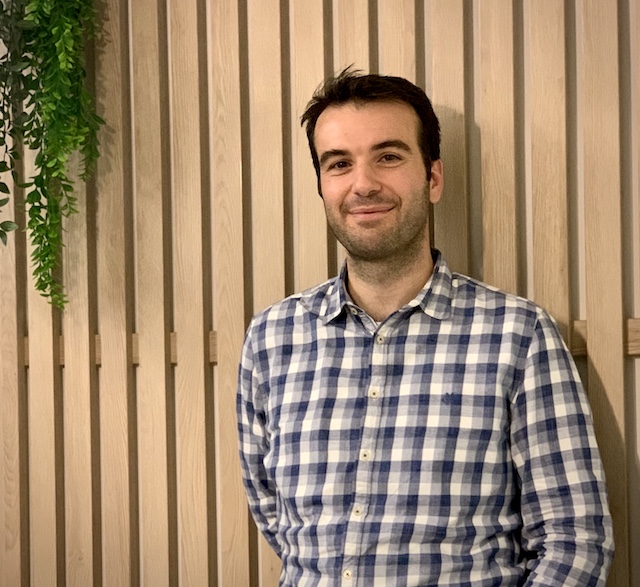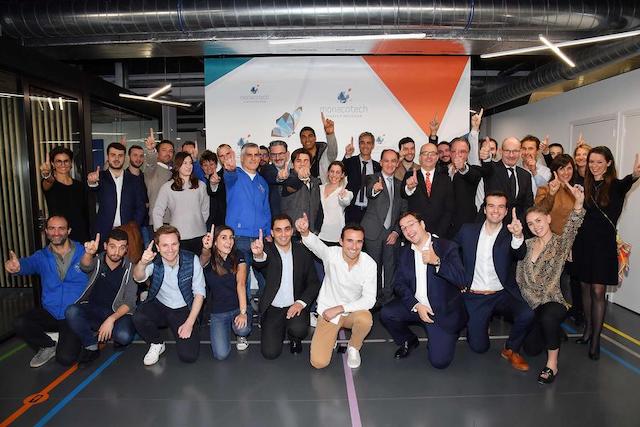Fabrice Marquet talks to Monaco Life about developing the Principality’s first ever business incubator MonacoTech and moving on to his next venture, Monaco Foundry.
[ihc-hide-content ihc_mb_type=”show” ihc_mb_who=”2″ ihc_mb_template=”1″ ]
Monaco Life: You spent 12 years as a MedTech research scientist in top-tier institutions worldwide. What was it like returning to your native country to set up Monaco’s first business incubator?
Fabrice Marquet: It was the first time I felt I could return to Monaco and really contribute in a field that I was passionate about and skilled in. MonacoTech is a government initiative, launched in partnership with Monaco Telecom and Xavier Niel, who was like the “godfather”. His name and network were incredible marketing tools, speeding up the process of attracting interest from companies and building a network of contacts. Something that literally took him five seconds, like writing an email for an introduction, would have taken the founders 15 to 18 months to talk to someone at that level.
My mandate was to promote Monaco-based entrepreneurship and to perform territory economic development, so we were targeting sustainable start-ups that will be associated, at least partially, with Monaco. It is a very niche sector. But we were very successful and now MonacoTech has a portfolio of 15 companies who have, within two years, generated close to €10 million in revenues, raised almost €15 million more, and has an evaluation valued at over €120 million.
What was your role specifically?
To start everything. I began by putting a team together and my job was to make sure they were performing to the best of their abilities. But we had to start everything from scratch – the culture, our values, the model, value proposition – all this had to grow from just an idea. It was the exact same process a start-up would go through, and to be honest the first members that we took on actually co-developed MonacoTech with us. We were, in effect, a start-up ourselves, so through the programme that we established we were applying to ourselves the advice that we were giving to them.
What was the initial reaction?
Venture and early stage start up is a very particular area to start with, for instance a classic private equity investor framework doesn’t apply to the venture world. So, of course it was very new to Monaco, we were like aliens here. But that’s what was also very exciting, to be at the forefront of the change that Monaco drastically needs.
It does seem hard to believe that there was no business incubator in Monaco before 2017. How much catch up do you feel you needed to play?
A lot, because we literally started from square one from an ecosystem standpoint. At the beginning, because Monaco is such a strong brand, we attracted a lot of international companies who only wanted to come here to find investors. It was the classic cliché. But my vision and the strategy that we applied were very different. There are two values that I am hellbent on – transparency and being coherent and cohesive. So, I told all the companies who wanted to come to Monaco solely to find investors to go anywhere else in the world. We were looking for innovators who we would co-develop from the ground up with us. That doesn’t fit everybody’s needs, which is good because we didn’t want just anyone. Also, for those who were willing to play ball with us and sacrifice part of their time and resources for the benefit of the others coming after them, it was an opportunity for them to also shape an ecosystem tailor made to their needs.
Do you have any one particular project that stands out during your time at MonacoTech?
All the projects were carefully selected so they all stand out. Of course, there are different maturity levels, so if you look at the more advanced projects, KeeSystem is a great fintech for asset managers and family offices. Meanwhile, YouStock is in full expansion and is opening in Paris office right now. They are the two most revenue generating companies today.
I come from MedTech and healthcare, so there are two great projects I am fond of – Surgisafe, which is a MedTech for the treatment of cancer and a potentially impactful project which could be worldwide within years. Coraliotech is also a great story because it comes from a partnership with the Scientific Centre of Monaco and a Parisian start-up spin-off, whose main objective is to research and discover new active substances in coral for human health and wellbeing. This project is very interesting because it involves not only one molecule, and although they still have a lot of challenges ahead, they could be putting five to six proteins on the market every year.
Well that all sounds very interesting, so what made you leave MonacoTech?
I was clear from the very beginning that I am not an administrator, I am a creator, so as soon as MonacoTech reaches cruise pace I am not the one to be in charge. We built this huge incubation brick which is performing very successfully, and I personally am very proud of the work that we have done, but the problem is there is nothing to facilitate the next steps. There are very few venture capitalist investors in Monaco or specialists of start-ups to make them scale-up internationally and almost none are interested in Monaco-based companies. So, it is not a real acceleration program, as of now. I could have stayed head of MonacoTech and wished for this to happen, or I could do it myself. I chose the latter and created Monaco Foundry.
Who is Monaco Foundry and what is your vision?
Our team is comprised of serial entrepreneurs, former senior government advisors and Fortune 500 executives, who actively help to develop or fund companies. Basically, the level of engagement that we will have within the business development will be determined by the founders. We can be remote advisors, networkers and door-openers, or we can drive the whole strategy, negotiate on their behalf, and pretty much do 50% of the founder.
Continuing the vision we had at MonacoTech, we want to provide a complimentary approach to venture. Most today are playing a numbers game and there is a huge failure rate of around 90%. So, you can take a financial approach, say “I’m going to diversify risk, take 100 companies, throw them against the wall and see which 10 that will stick, and then those 10 will reimburse me for the 90 that failed”. That works very well for some people. But this, to me, underlies a very passive process and it is where an opportunity exists. When you look at the reason why some companies fail today, most of these reasons are fixable. For almost half, the main reason for failing was that there was no market need; they are building amazing products that no one wants to buy. This is rectifiable and it is part of what we established at MonacoTech – the idea that you don’t think about the product, you think about the customer. Take customer segments, analyse the challenges they face and what they hope to achieve in the jobs that they do on a daily basis, and then design a product based on that information. Personally, I think that is the way to go.
So, there is room for a complimentary qualitative approach, a custom tailormade boutique. There are a few start-up studios like this that have emerged throughout the world, so it is a trend at the earliest level. And this is pretty much what we want to do – we want to be a boutique accelerator program, to work with a very few selected companies and really drive the business, roll up our sleeves and do the work with them.
Given my background, DeepTech companies are of course my first interest. They usually have amazing products and ideas and, if they are slightly advanced, some local traction as well. But they normally have no advanced business resources internalised within the team because they are funded by engineers, scientists or MDs, and they have no idea how to tackle international markets. We want to become their long-term business associates. Instead of just hiring one person, they hire an army of people, a network who have done the work before and who will drive the business as if it were their own.
Why is it so difficult to achieve success with DeepTech?
DeepTech has a long time-to-market due to costly industrial protoyping, strict regulations, trials, FDA approval, intellectual property… it is a very expensive process over a number of phases. For example, when I joined Columbia University, I worked on a project on reversible blood-brain barrier disruption – it was basically a novel localised chemotherapy for neurodegenerative diseases. The project started in 2004, I came to the lab in 2009 and published two patents in 2010 and 2011, then we licensed those patents in 2018 to the company that will, in a best-case scenario, have a product on the market in four to five years. That time frame is insane, especially when you consider a patent has 20 years of exploitation.
This is why people favour investing in short-term and promises of return after 18 months.
But why does it interest you?
We only want to work with companies that we could have founded ourselves, based on the product’s impact on society and the relationship that we will have with the cofounders. The only key factor is the human factor. This is also how the selection process evolved at MonacoTech. From the get-go, we said that the team was the most important asset, especially at the early stages – a start-up is basically a team and an idea, three people doing the work of 25. But the idea is worth nothing; you only invest in the ability of a team to execute and keep their promises. If you have an idea with huge potential but the founders won’t constantly challenge themselves, listen or accept help, they are going to hit the wall no matter what. But if you get a team of great people, even with a bad idea, I will invest in them, because although they may fail, they will learn and move onto something else and they will succeed in the end.
[/ihc-hide-content]
Interview: Fabrice Marquet



